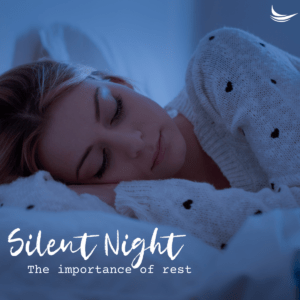 For a moment, I want to take you back to the start of the First World War, during the Christmas Truce of 1914 along the Western front when German and British soldiers fighting in the trenches declared their own official truce. For a moment, enemies came together for a moment to share in the Christmas spirit. Gunfire fell silent. The tune to the popular Christmas carol “Silent Night” could be heard from a distance on the battlefield, known in German words as “Stille Nacht” during the Christmas truce over 100-years-ago. It was a beautiful moment of peace during a time that was known as one of the bloodiest wars in history.
For a moment, I want to take you back to the start of the First World War, during the Christmas Truce of 1914 along the Western front when German and British soldiers fighting in the trenches declared their own official truce. For a moment, enemies came together for a moment to share in the Christmas spirit. Gunfire fell silent. The tune to the popular Christmas carol “Silent Night” could be heard from a distance on the battlefield, known in German words as “Stille Nacht” during the Christmas truce over 100-years-ago. It was a beautiful moment of peace during a time that was known as one of the bloodiest wars in history.
This past year, yearning, despair, and hope have been present. In Minneapolis (and beyond), we have heard sounds of war and have sought refuge. We have longed for a moment of silence amidst the chaos. Emotional fatigue was a common experience, largely impacted by the emotional toll of stressors and state of uncertainty and unrest, impacting our mind and body’s ability to rest.
I have never fought in the military, but my good friend who has recalled the heightened state of alert and sleepless nights before the Minnesota National Guard came to intervene. They felt as though they were living in the middle of a war zone, especially after the entire National Guard was mobilized. On May 28, 2020, a State of Emergency was declared in Minnesota, a time when mental health distress was also taking its toll.
Did you know that this was Minnesota’s largest deployment since World War II? My friend was able to effectively cope after getting adequate rest and taking care of themselves. Relief brought a sense of calm. For trauma treatment and many other mental health diagnoses such as anxiety and depression, sleep is impacted.
Since there are so many areas that impact sleep, it is important to get enough hours of rest. According to the CDC, this varies from a minimum of 7 hours for adults and up to 17 hours for newborns. It is important to develop sleep hygiene to promote adequate rest
The Sleep Foundation lists common causes for insomnia in addition to stress and mental health. This includes an irregular sleep schedule or poor sleeping habits, physical illnesses and pain, medications, neurological problems, and specific sleep disorders.
Sleep has great restorative benefits for keeping one’s mind and body at optimal functioning.
Check out these awesome health benefits from Medical News Today that are associated with a good night’s rest:
- Better Productivity and Concentration
- Lower Weight Gain Risk and Better Calorie Regulation
- Greater Athletic Performance
- Lower Risk of Heart Disease
- More Social and Emotional Intelligence
- Preventing Depression
- Lower Inflammation and Stronger Immune System
If you are interested in having a safe space to process sources of stress, and trauma, or discuss a specific mental health concern that is impacting rest, CARE Counseling is here to help!
Written By: Charlotte Johnson, MA, LPCC
We’re Here to help
Our wellness experts will be happy to take care of you. You can CLICK HERE to schedule an appointment now or call (612)223-8898.
Meet Clinicians
We’re united by our commitment to providing effective, relevant, and innovative mental health support at all stages of your journey. Click Here to find out more about who we are, where we come from, and how we live out CARE’s mission every day.
The professionals at CARE are actively collecting and creating resources to help with what you need. We’re Here for You.



